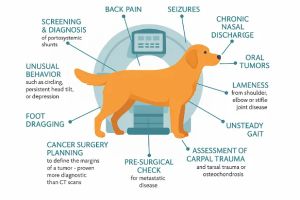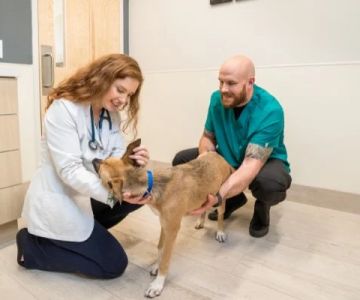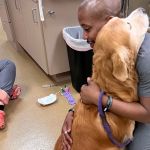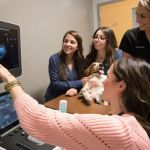
1. Understanding Senior Pet Health
As pets age, their health needs change, and it becomes crucial for pet owners to adapt their care routines to monitor these changes effectively. Senior pets, just like humans, experience a variety of aging-related health issues that require extra attention. It's essential to recognize these changes early, so you can provide the best care possible for your furry friend.
Many pets enter their senior years between the ages of 7 and 10, depending on the breed and size of the pet. Smaller dogs tend to live longer than larger dogs, while cats generally age more slowly. Regardless of age, it's important to stay proactive about monitoring your pet's health as they grow older.
2. Common Health Issues in Aging Pets
As pets age, they may face various health challenges. Some of the most common aging-related health issues in pets include arthritis, dental disease, vision and hearing loss, and cognitive dysfunction syndrome (CDS). Understanding these conditions can help you monitor your pet more effectively and seek the appropriate veterinary care when needed.
2.1 Arthritis in Senior Pets
Arthritis is one of the most common health problems in senior pets, especially dogs. The wear and tear on their joints over the years can lead to pain, stiffness, and difficulty moving. Symptoms of arthritis may include limping, reluctance to jump or climb stairs, or slower movements. Regular vet checkups are crucial to diagnose arthritis early and provide pain management options such as medication, joint supplements, or physical therapy.
2.2 Dental Issues in Older Pets
Dental disease is another common issue for senior pets. Gum disease, tooth decay, and tooth loss can lead to discomfort, difficulty eating, and even systemic infections. Regular brushing, dental chews, and professional cleanings are essential for maintaining good oral health. If you notice bad breath, drooling, or difficulty chewing, it could indicate a dental issue that requires veterinary attention.
3. Monitoring Behavior Changes in Senior Pets
Behavioral changes are often one of the first signs that your senior pet is experiencing aging-related health issues. Changes in behavior can include increased irritability, confusion, or withdrawal from activities they once enjoyed. These changes may be linked to physical health problems or cognitive dysfunction syndrome (CDS), a condition similar to dementia in humans.
3.1 Signs of Cognitive Dysfunction in Pets
Cognitive dysfunction syndrome (CDS) is common in older dogs and cats. Symptoms of CDS can include disorientation, disrupted sleep patterns, house soiling, and a decrease in responsiveness to commands or family members. While there's no cure for CDS, treatments such as special diets, medication, and increased mental stimulation can help improve your pet's quality of life and slow the progression of the disease.
4. Importance of Regular Vet Visits for Senior Pets
One of the most effective ways to monitor aging-related health issues in pets is through regular veterinary checkups. Senior pets should see the vet at least once every six months for comprehensive health screenings, including blood tests, urine analysis, and a thorough physical exam. These visits help detect early signs of health issues such as kidney disease, diabetes, or heart conditions, allowing for timely intervention and treatment.
During these visits, it's also important to discuss any concerns you have about your pet's behavior, appetite, or physical changes. Your vet can offer specific recommendations based on your pet's unique health needs.
5. Supporting Senior Pets with Special Needs
As your pet ages, you may need to make certain accommodations to support their changing needs. This could involve adjusting their diet to include joint supplements or more digestible food, providing extra padding or orthopedic beds for added comfort, or creating a safe environment with easy access to food, water, and litter boxes.
5.1 Diet for Aging Pets
Aging pets may require a specialized diet to maintain their health. Foods that are rich in omega-3 fatty acids can help support joint health, while antioxidants can aid in brain function. Consult your vet for the best dietary options to ensure your senior pet is receiving all the necessary nutrients for their age and health condition.
6. Regular Monitoring for Senior Pet Health Issues
Regularly monitoring your pet’s health at home is just as important as veterinary visits. Keeping an eye on their eating habits, weight, coat condition, and activity level can provide valuable insights into their overall health. For instance, sudden weight loss or difficulty standing could signal a serious problem that requires immediate attention.
At home, you can also keep track of your pet's behavior. Are they more lethargic than usual? Have their eating or drinking habits changed? Small changes in behavior can be early indicators of health problems, allowing you to address them before they escalate.
7. Resources for Senior Pet Care at Pet & Puppy
For additional guidance on caring for aging pets, visit Pet & Puppy. Our website offers a variety of resources, products, and recommendations to help you provide the best care for your senior pet. From specialized diets to comfortable bedding and joint supplements, you can find everything you need to support your pet's health and well-being as they age.









 Royer Veterinary Services4.0 (1203 reviews)
Royer Veterinary Services4.0 (1203 reviews) Durango Equine Veterinary Clinic4.0 (112 reviews)
Durango Equine Veterinary Clinic4.0 (112 reviews) Carefree Dentistry and Oral Surgery for Animals4.0 (114 reviews)
Carefree Dentistry and Oral Surgery for Animals4.0 (114 reviews) Encanto Mobile Veterinary Services3.0 (11 reviews)
Encanto Mobile Veterinary Services3.0 (11 reviews) Advent Veterinary Services (Dr. Vivian Ramos - Dr. Thomas Kilbane)4.0 (336 reviews)
Advent Veterinary Services (Dr. Vivian Ramos - Dr. Thomas Kilbane)4.0 (336 reviews) CARE Animal Surgery Center4.0 (129 reviews)
CARE Animal Surgery Center4.0 (129 reviews) How to Build Confidence in a Shy Pet
How to Build Confidence in a Shy Pet How to Find the Right Specialist Vet (Cardio, Ortho, Neuro)
How to Find the Right Specialist Vet (Cardio, Ortho, Neuro) The Effect of Seasonal Allergies on Pets & How to Help
The Effect of Seasonal Allergies on Pets & How to Help How to Build a Pet Emergency Kit: Essentials You Need
How to Build a Pet Emergency Kit: Essentials You Need Coping with Pet Separation During Long Vacations: Tips & Solutions
Coping with Pet Separation During Long Vacations: Tips & Solutions How to Transition a Senior Pet to Easier-to-Eat Food: A Comprehensive Guide
How to Transition a Senior Pet to Easier-to-Eat Food: A Comprehensive Guide